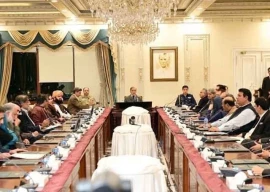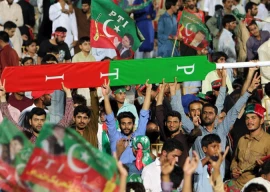
Mughal-e-Azam is a sad love story, everyone knows that. Although the movie has a bit more optimistic ending than other versions of the story, allowing Anarkali to live, albeit in obscurity. However, if one reflects on it, it is only sad for Anarkali, Akbar-e-Azam still remains the Emperor, the young crown prince Salim, affectionately called Sheikho, remains alive and well on his course to become the Emperor Jahangir. There is something very homely, perhaps oriental about a mighty father and the first born son made to lock horns, and then reconciliation, well sort of.
Profound apologies in advance for taking liberties with a classic like Mughal-e-Azam and a legend like Dilip Kumar Sahib. However, what would one give to watch a sequel, the father and son finally reunited life after Anarkali. Reunited, not without some sense of loss on both sides, yet reconciled, misgivings removed. What is an Anarkali or two between the Emperor and the heir-apparent? Sheikho was perhaps a little reckless, perhaps, yet still a son, in due course all is forgiven, even Anarkali was forgotten in due course. Blood after all is thicker than water. Sheikho was after all the son of Akbar-e-Azam himself, the ruler with no sharers, the paragon of justice, sometimes it seemed justice himself. Sheikho was once thrown out of the palace or maybe chose to leave of his own will. In any event, he can return now. And return not as prodigal, but as vindicated. Almost makes one sentimental, thinking about the imaginary scenes of reunion between the father and the son, the son who has redeemed himself, untainted, can now look his father in the eye and claim to be a worthy prince. Moving scene it would be, would it not? A truly Kodak moment, it would be.
And what about the malicious intriguers, the naysayers, the opportunists who took the licence of making wild allegations against Sheikho, while there was a rift? Those who cried in croaky tones that Sheikho be treated as a common subject, disregarding and also disrespecting his royal blood. Surely, if a sequel is ever made, they will be portrayed in a light that they deserve, treated with contempt. Akbar-e-Azam and his viziers would take a dim view of those conspiracy mongers, those merchants of discord. Alas, we will never now, Prithviraj Kapoor is long gone and Dilip Kumar is too old now.
The realm of fantasy aside, Mughal-e-Azam also brings to light the complexity of the father-son relationship in powerful households and leads one to muse about some in our part of the world. We have a solid tradition of strong inspirational father-son duos. As all of us are children of Abraham (don’t tell me, you didn’t know that) and have the glorious tradition of Abraham and Issac, another story of momentary tension and then reconciliation. Admittedly, not all of them are as adversarial as Akbar and Sheikho. Skip a few centuries, and here in Pakistan, we have glorious stories of father and son making their name in separate fields, side by side, yet independent, standing shoulder to shoulder in triumph. Allow me to repeat an unconfirmed story that I am sure I have told before of the gallant Field Marshal Ayub Khan and his son Mr Gohar Ayub. So reportedly, after the conclusion of a meeting being chaired by the Field Marshal, he was told of the extraordinary growth of the business of his son. The Field Marshal being pleasantly surprised remarked with fatherly pride, “Ah, I never thought the boy had it in him”.
Mr Ayub while remaining a seminal example is by no means alone in the ranks of our illustrious entrepreneurs who have made it big on their own, independently. Mr Ijazul Haq, Mr Humauyn Akhtar Khan, not forgetting Mr Husain Nawaz and one or two other names which escape me for the moment are stories of inspiration.
Theirs are stories of unparalleled entrepreneurship, making fortunes on their own. Lessons for our young ones, if you work hard (alright you can also play a little) and have faith you can be incredibly, phenomenally successful, despite having your father in a position of power. It is a pity and our loss that we have not cherished them as much as we should and learn from their brilliance and expertise in assisting us out of our permanent economic crisis. They represent the victory of family values and hard work. Instead of trying to downplay or god forbid ridicule them (surely driven by enviousness), we should dip our flags and bow to their success. It is about time that we pay homage to them. These are not only sons of great (incidentally also rich and powerful) men; these are also by natural causation sons of the soil. Yet, all is not lost, there is some evidence of a new cadre of young, hungry (for success that is) entrepreneurs undeterred by the positions of authority that their fathers hold.
Mughal-e-Azam, Akbar and Sheikho belong to the ages. We have an Akbar and a Sheikho in their own way in each time. Cheers for Dilip Kumar sahib’s long and healthy life. He would be happy to know Sheikho is alive, well and thriving in Pakistan.
Published in The Express Tribune, December 16th, 2012.
COMMENTS (17)
Comments are moderated and generally will be posted if they are on-topic and not abusive.
For more information, please see our Comments FAQ




























-(1)1714378140-0/AliAminMaryam-(4)-(1)1714378140-0-270x192.webp)








Comparing what Ayub Khan done for this God forsaken country to his only too human failing as far as his son Gohar Ayub was concerned, well there is hardly a comparison. When Ayib Khan resigned from his presidency, he didnt even have his own house to move into. First he lived in a room in the Army house, and then went to live with his daughter until his own modest house was complete. This was the same man who gave us Islamabad, Mangla, Tarbela dams amongst a long list of constructions and achievements. As much as I admire your writing, please don't just write against the man because he was an army general. You DO realise what the democrats have been up to over the years. At least give the man credit for what he achieved for his country. 37% of the electricity still comes from the dams and barrages built during his rule. Forty years later, we still can't build a single dam like the Kala Bagh. Let's get the facts right, it's so easy to be critical, much harder to praise and appreciate.
Superb. Really enjoyed the excellent humorous/light sarcastic tone of your article. It reminded me of Ghani Khan's book (The Pathans) in which he writes: ''The local representatives of His Britannic Majesty lost their sense of humour (that wonderful English sense of humour that you always feel in punch but seldom in an Englishman's eyes)''
"The paragon of justice" hehe
Hahah, "He would be happy to know Sheikho is alive, well and thriving in Pakistan" Although I get a feeling that some of the commentators did'nt get the intended pun in the article. Keep up the good work Saroop bhai
Superb! Simply superb. Proud of you.
LOL! Awesome!
this country is good for the Zardaris, Bhuttos, Sharifs, Gilanis, Generals & forces' elite & their progeny and of course the sons of CJs too. include friends and well wishers of these people in list too. and you get the mess of a nation that we are now. wanna destroy a country?put incompetents on the positions where long-term planning takes place. the rest is following now.
Tongue-in-cheek humour and sublime sarcasm is the way I read your references of the present to the past..............and I may be wrong but I did like it.
Saroop great work! The mentioning of the Registrar of Supreme Court alongwith the dance of Madhu Bala is matchless.
Looking forward to your next contribution.
Cheers
Haha Brilliant article. Let us hope the Chief and Arsalan get the message.
How can u miss arsalan - i wish harvard business review run a case study........
say what you want about Gohar ayub and Humayun akhtar, ijaz ul haqs father, who is is rightly blamed for destroying the fabric of the country, left with almost nothing to his name. ijaz ul haq's family had to be shifted to chaudhry shujaat's house in the interim. i cannot comment on the other two, their billions are known. ijaz ul haq has a thousand failings, but snide remarks about his 'entrepreneurial' skills are below the belt, Mr Saroop. you of all people should know better.
hassan nawaz... you must be kidding me...
the guy has the backing of his father, and his family. While the dad pays no taxes, seemingly so because all of his business is on his son's name.. and yet you call him an extra ordinary.... the current generation of so called leaders that are leading thsi country is nothing more of pampered brats born with a golden spoon in their mouths...
Inclusion of Hussain Nawaz in this league is not justified. When Hussain was born, his grand father was already one of the top industrialists of the country.
@Saroop
Superb . What a gifted story-teller you are ! Your article reads like an excellent literary work . I hate to point out though that the parallel you have drawn between contemporary father-son duos and duos of the Mughal royalty is deficient in one respect . Where are the sons who put their father in dungeon or gouge out the eyes of a brother , and chop off the head of the other . Anyway, no problem . All analogies are ipso facto incomplete . One apprehension ! Our illustrious duos are likely to miss the bite in your story, and read it simply as a tribute to their God-gifted entrepreneual skills .
Loved reading this, but plugging in unworthy Pakistani father-son duos was a deflection taking away from the richness of the story..